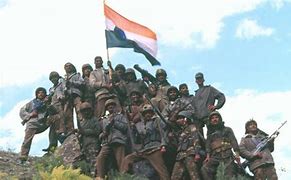Mumbai, July 20: The latest iteration of ORF’s National Security Dialogues – a monthly event – aims to discuss the Kargil War and its lessons.
It has been 25 years since the Kargil War when intruders from Pakistan occupied mountain peaks along the Line of Control (LoC), necessitating military action for their removal. The Indian Army, due to multiple failures in intelligence, surveillance, and reconnaissance, became aware of the intrusions only after a significant delay. Even then, the lack of coordination and force integration led to a disorganised response and prolonged the conflict. The Kargil Review Committee’s report highlighted these issues and recommended serious military and intelligence reforms to prevent the recurrence of such a situation. In 2020, Indian forces were again caught unaware when China’s PLA amassed a massive force on the western sector of the Line of Actual Control (LAC), leading to clashes in Galwan and an ongoing border standoff. Both events highlight India’s failure to predict and pre- empt these threats. Moreover, despite a sizable defence budget, a worsening international security scene, and growing Chinese aggressiveness, India’s force integration, jointness, and higher command reforms leave much to be desired.
Some of the key questions guiding this discussion are:
From Kargil to Galwan, has India’s surveillance and reconnaissance evolved to meet its emerging threat environment? Is the failure to recognise threats due to a lack of resources, technology, or complacency?
What were the main lessons of Kargil, and have they guided defence reforms in India? How might the emergence of new technologies transform India’s response to Kargil-type intrusions in the future?
The panellists will examine whether Indian forces have evolved in terms of force integration, jointness, and interoperability, particularly concerning Pakistan and China.




